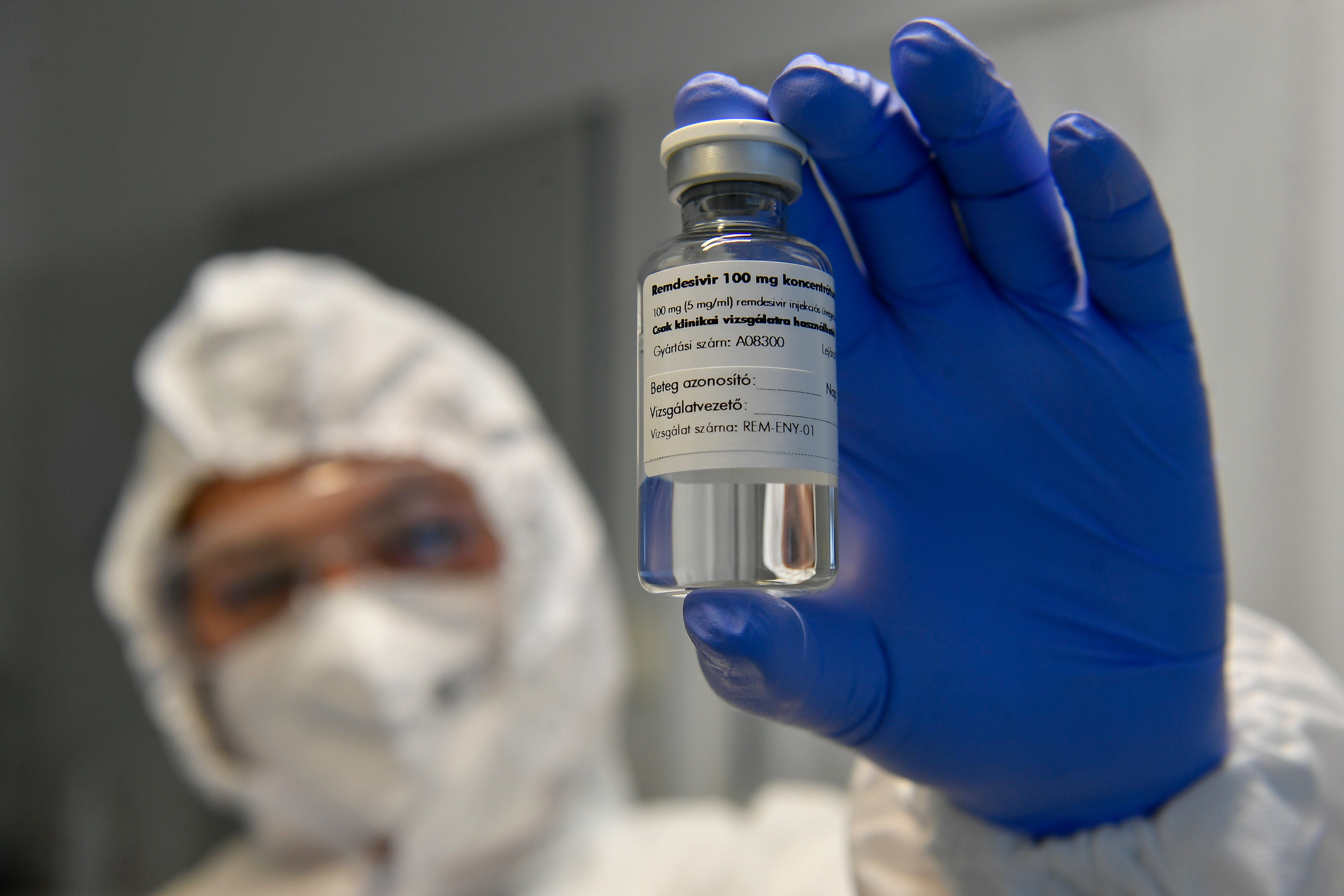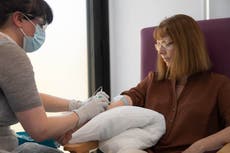Coronavirus: Remdesivir has ‘little or no’ effect on patients’ survival chances, WHO study suggests
The results are ‘disappointingly unpromising’, the UN body says

Remdesivir has "little or no effect" on the mortality rates of patients with coronavirus in hospital, a clinical trial by the World Health Organisation (WHO) has suggested, describing the drug as “disappointingly unpromising”.
The antiviral drug is one of four that was considered in the WHO’s Solidarity trial that began in March, looking to repurpose treatments that could be used to tackle coronavirus symptoms.
Remdesivir, which was one of the drugs given to President Donald Trump earlier this month when he tested positive for the virus, was originally developed as a treatment for Ebola.
The trials have also looked at the effects of lopinavir, hydroxychloroquine and interferon-beta 1a on patients’s survival chances, concluding that none had a significant effect on mortality rates.
The Solidarity study concluded its trials into hydroxychloroquine and lopinavir in late June and early July respectively.
WHO said: "For each drug in the study, the effect on mortality was disappointingly unpromising. These results were not significantly affected by the exclusion of certain countries, regions or subgroups."
Remdesivir – which was approved in the UK for treatment of Covid-19 in May – had previously been shown to reduce the duration of symptoms from 15 days to 11, but this is the first time its impact on survival rates has been studied.
In contrast, steroid dexamethasone has been shown to reduce deaths among those seriously ill with Covid-19, and has previously been hailed as a “major breakthrough” in the fight against the virus. A trial in June suggested that the anti-inflammatory drug could prevent one in three deaths among patients on ventilators.
The WHO study, which has not yet been peer-reviewed, said: "No study drug definitely reduced mortality (in unventilated patients or any other subgroup of entry characteristics), initiation of ventilation or hospitalisation duration."
The research analysed data from 11,266 adults in 405 hospitals in 30 countries.
The Solidarity trial will continue and evaluate new treatment options, WHO said, with almost 500 hospitals ready to serve as treatment sites.
"Newer antiviral drugs, immunomodulators and anti-Sars COV-2 monoclonal antibodies are now being considered for evaluation via the Solidarity Therapeutics trial," the UN body said.
Join our commenting forum
Join thought-provoking conversations, follow other Independent readers and see their replies
Comments




Bookmark popover
Removed from bookmarks